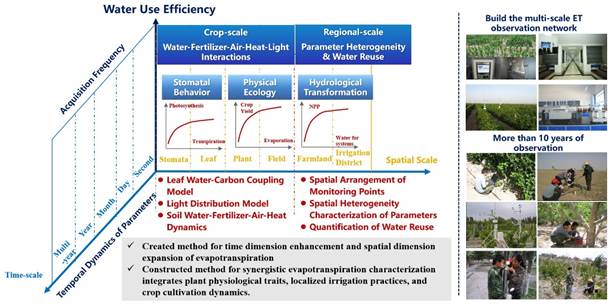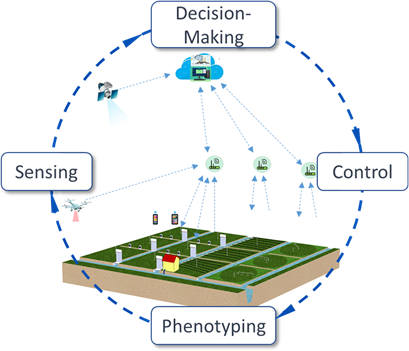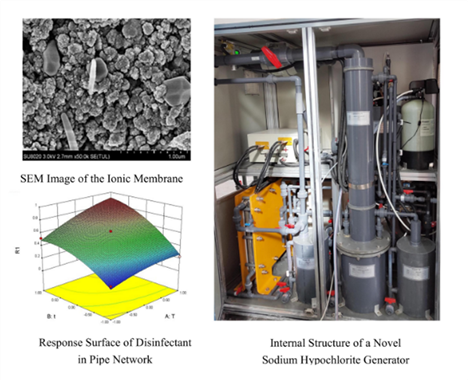Founded in 1956, the Department serves as the principal entity for both the National Center for Efficient Irrigation Engineering and Technology Research (Beijing) and the National Center for Quality Supervision and Test of Agricultural Irrigation and Drainage Equipment. it devotes to development of innovative technologies and products, the strategic planning, technical training and extension, and international exchange. It is structured into 10 specialized sections, staffed by a team of 70 professionals with 90% of doctoral degrees, including 25 professor-level senior engineers and 27 senior engineers. The research focuses are as followings:
Efficient Water Use in Irrigation Districts
· Strategies and policies of sustainable water management
· Multi-temporal and spatial monitoring of agricultural water cycle
· Simulation and prediction of water supply in irrigation systems
· Optimal distribution and allocation technologies of irrigation water
· Irrigation water measuring technologies and products
· Agricultural water use efficiency evaluation

Spatio-temporal scale expansion of evapotranspiration
Smart and High-efficient Irrigation
· Efficient crop water use mechanism and Irrigation regimes
· Drip and sprinkler irrigation technologies and products
· Simulating and regulation of water-fertilizer-salt processes
· Use of non-conventional water resources and groundwater management
· Smart irrigation technologies and products regarding phenotyping, sensoring, decision-making, and control of water

Smart irrigation framework
Field Drainage and Soil-water Environment Protection
· Simulation and prediction of field water & solute fate
· Drainage technologies and products in saline-alkali farmland
· Mitigation, prevention and control of agricultural non-point source pollution
· Remediation of agricultural soil micro-environment
· Prevention and control of farmland water-logging disasters
· Farmland drainage use reuse

Farmland Drainage management for mitigating waterlogging and salt-affected soils:monitoring, simulation and measures
Safety Drinking Water Supply in Rural areas
· Protection of rural drinking water source
· Purification of poor quality water and polluted water
· Sterilization, water quality testing and automatic monitoring
· Rainfall harvest, storage and utilization for drinking water
· Ecological treatment and reuse of rural domestic sewage
· Strategies, policies and planning for rural drinking water

Structure of A Novel Sodium Hypochlorite Generator